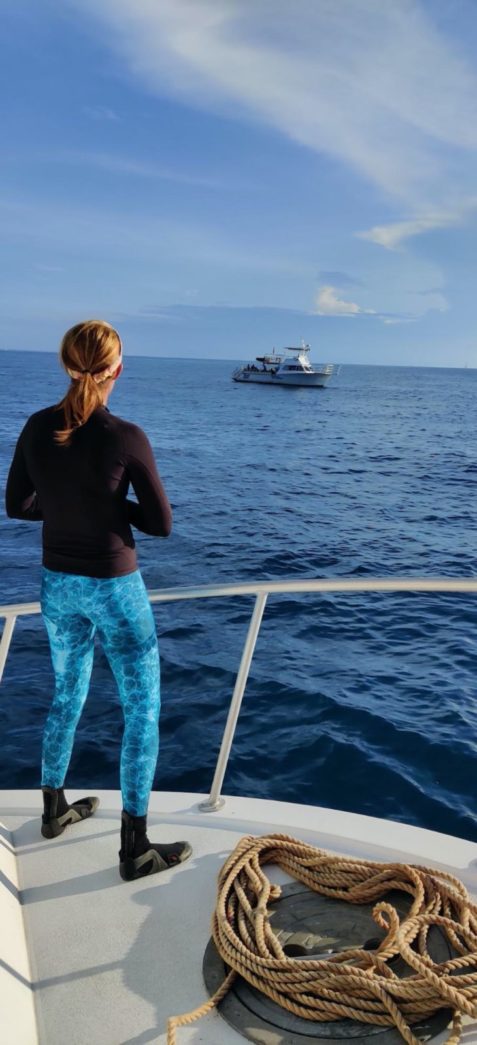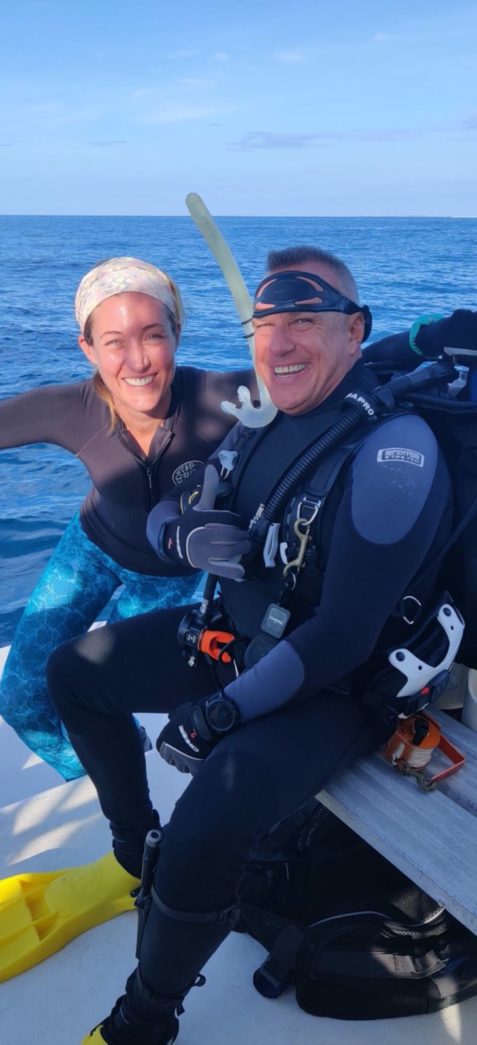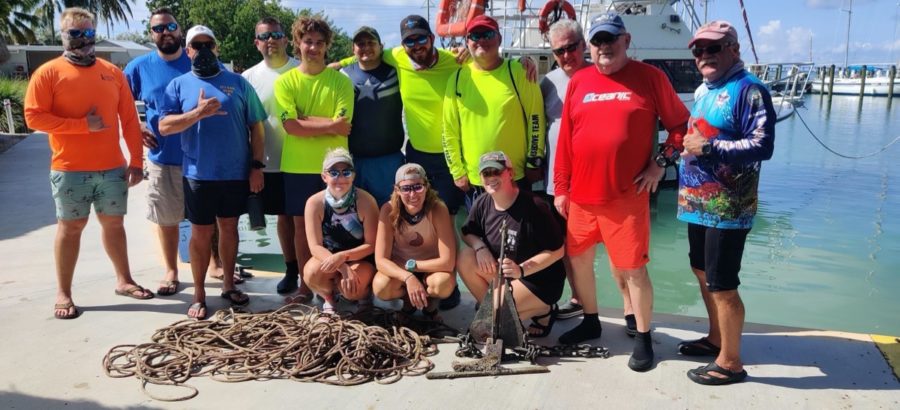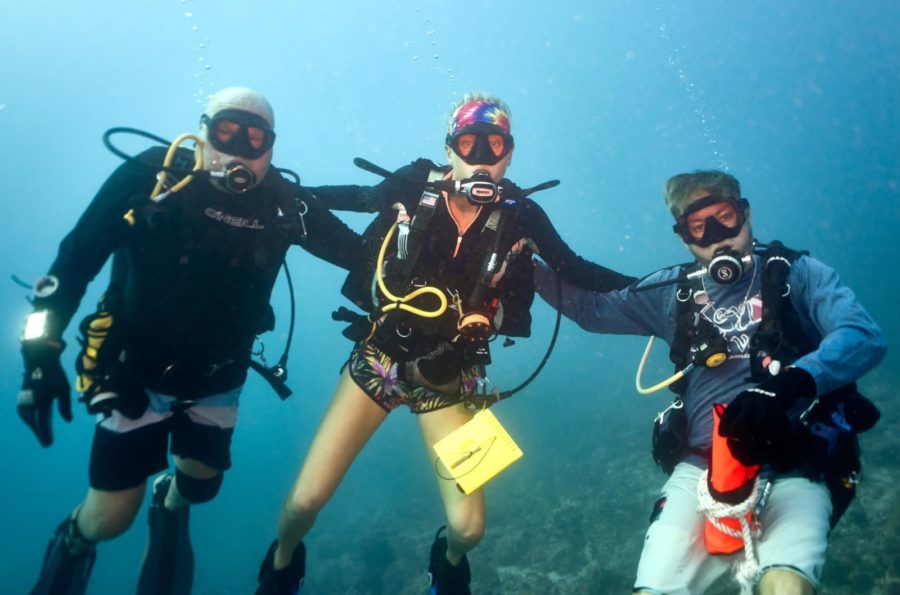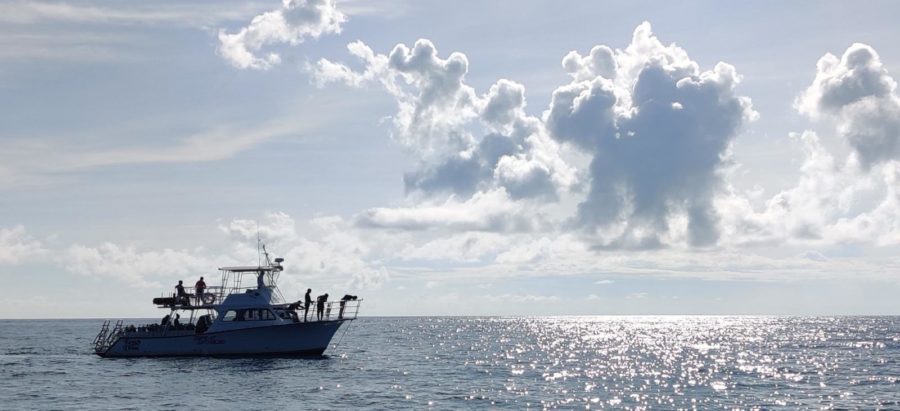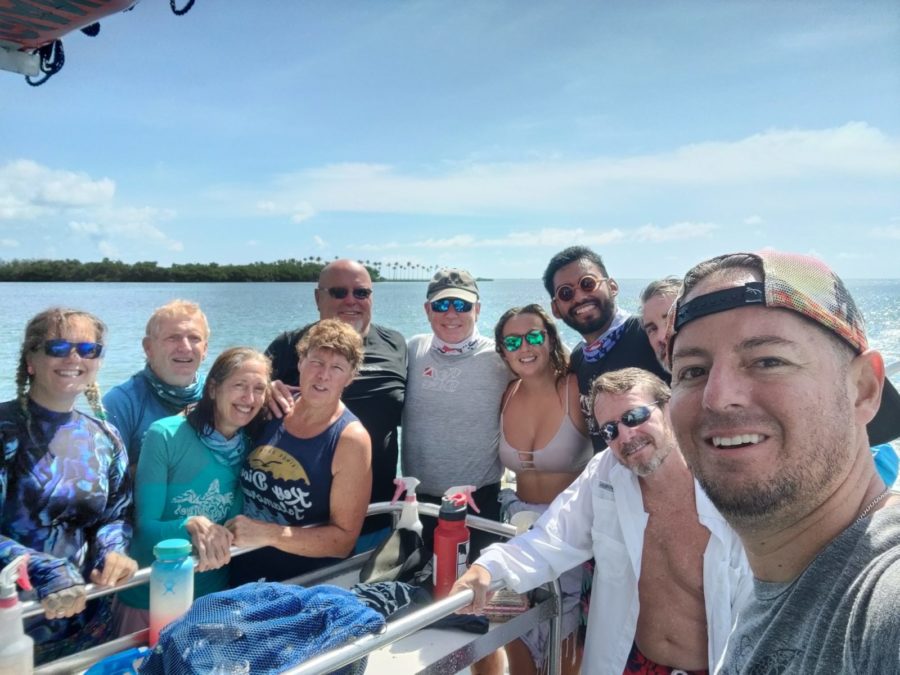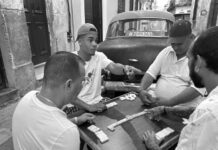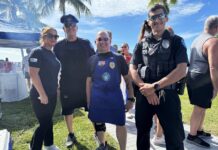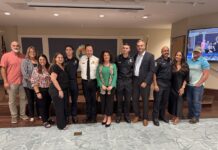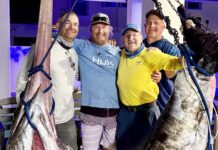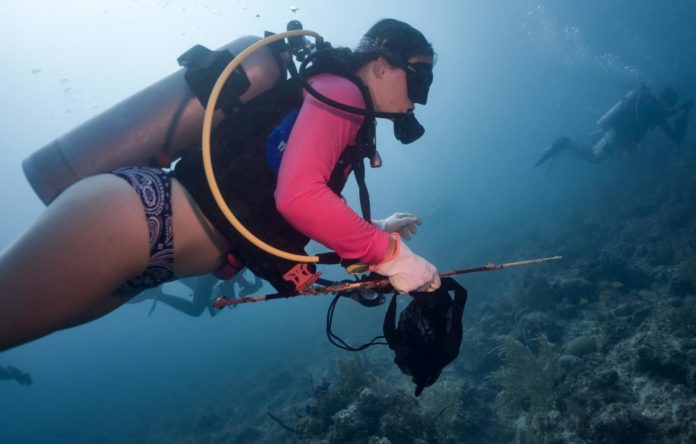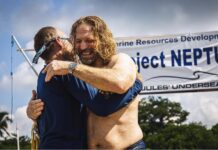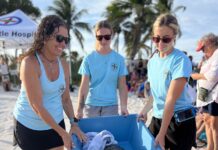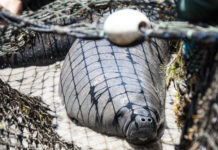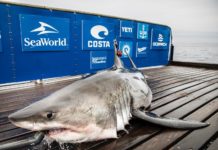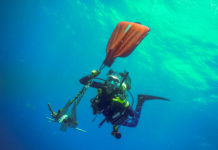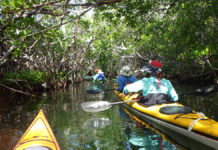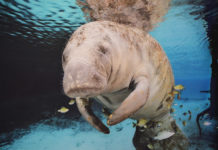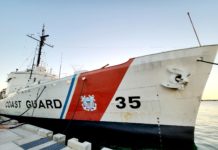Islamorada dive shop Key Dives hit the water earlier this month for a cleanup dive, this time with a huge helping hand. The Florida National High Adventure Sea Base, Boy Scouts of America (BSA) hopped aboard the BSA Burglar and met Key Dives’ Giant Stride out at an Islamorada dive site named “Turtle Truk” for a joint cleanup effort.
Key Dives owner Mike Goldberg had found the site while on a lionfish hunt. Mike couldn’t help but notice an abundance of derelict fishing debris while on an otherwise beautiful drift dive across the site, he said.
“We have to get back to that site to clean it up,” Goldberg said.
The cleanup collaboration was the brainchild of Stephanie Schneider, a current instructor candidate with a Sea Base-sponsored course led by PADI course director Michael Casey.
Schneider earned her divemaster with the Islamorada shop and has participated in several of the monthly dives with a purpose. During her instructor development course, Schneider joked with Casey that the group should join a cleanup as a “study break.”
“I’m all over that,” Casey responded.
The mission was born, and the two organizations quickly settled on “Turtle Truk” as their trash target.
It was Sea Base’s first cleanup dive, and their team of 15 included instructor candidates, staff instructors, course directors and Sea Base employees.
Cortney Benson is the “engine” behind Key Dives’ massive conservation efforts, according to Goldberg. First as the marine conservation coordinator and now as the operations manager, she has pushed the shop to lead nationwide Dive Against Debris cleanup efforts, and they’ve picked up nearly 12,000 pounds of debris off local reefs. The efforts align with the shop and their sister organization I.CARE’s goal of restoring Islamorada’s depleted coral reefs.
Darcy Justin, a first-time cleanup diver and IDC candidate with Sea Base, said, “I am eager to see what a cleanup dive entails. I think we will find a lot of rope and fishing debris, maybe 100 pounds of trash.”
In total, the Sea Base divers and 14 volunteers and staff from Key Dives removed 120 pounds of rope, anchors, monofilament, fishing hooks and other debris.
Casey was inspired to incorporate a conservation project and partnership like this one into all of his instructor development courses.
“IDC is a very labor- and psychologically intense course. It’s like drinking from a fire hydrant,” he said. “If we can give (candidates) the opportunity to (relax) in the middle of the program to do some good for the reef, this will help set them in motion to have a fabulous instructor exam.”All cleanup dives are performed under permits. To join Key Dives’ monthly cleanup dives, call 305-664-2211 or email info@keydives.com.
